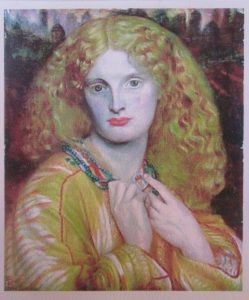The new Pixar movie “Coco” – the best animated film of all time, in my view – depicts an afterlife to die for. It made me recall from my Sunday School days that Jesus once told his followers, “In my Father’s house are many mansions. … I go to prepare a place for you.” In “Coco” the dead (skeletons all) live on in fantabulous, fantastical mansions in the sky. They’re immensely happy, and they have a lot of fun — zipping around in airborne trolley cars, getting all dressed up for huge musical events and such.
These colorful, joyful scenes in “Coco” (which I saw in Spanish some weeks ago here at the Cinemex in San Miguel de Allende and again, in English, at a friend’s this week) are not unlike the Heaven I’ve imagined since childhood. It’s the reason I’ve never been the least bit afraid of death. Those of us who don’t live in mansions down here on earth (and haven’t paid the price for them by selling our souls) find the idea of a mansion in the sky in the Sweet Bye and Bye pretty appealing.
To quote Peter Pan author J. M. Barrie, who lived to see 77: “To die will be an awfully big adventure.” I’m with him. But who really knows for sure what’s over that hill? We afterlife-optimists could just be kidding ourselves. As the Mexicans like to say, Vamos a ver…
In “Coco,” though, there’s a curious catch: To be happy in the afterlife, you have to be remembered in this one. This might explain the Mexican tradition during Day of the Dead celebrations each year in late October to erect an altar to their dearly departeds and set out on that altar photos of those loved ones, along with some of their favorite things, such as snacks and drinks. The message is: You are gone but not forgotten; you live on in our hearts and minds; we love you still. Here, have a drink.
Those who are NOT remembered in this way, according to the “Coco” story line, disappear altogether. Suddenly they begin to shake and glow – like they’re being electrocuted or something. Then, POOF! Gone. When little Miguel, the hero of “Coco,” sees this happen to one old codger, he asks his new, skeletal friend Hector, “Where did he go?!” Hector shakes his bony skull, shrugs his shoulder bones and admits sadly, “Nobody knows.”
All of this has led me to suspect that sometimes the spirits of the dead tap us on the shoulder and whisper, urgently, Remember me! Writers, I know, will have little trouble agreeing with me because we’re able to chalk this experience up to “the muse” and not necessarily insanity.
I’m sure my Taos friend Cherie Burns felt this way when she was writing her acclaimed biography of Millicent Rogers, Searching for Beauty (St. Martin’s Press). And, too, my author friend Sallie Bingham in Santa Fe surely felt tapped on the shoulder before she embarked on her definitive biography of Doris Duke, The Silver Swan, to be published by Farrar, Straus this spring.
I’ve felt some tapping too. Anyone who knows me fairly well knows that I’ve been “urged” by my Scottish great-grandmother, Helen, who’s been dead for oh, about 134 years, to write a book about her life. (For more on this, please see my previous post regarding Helen – “Wanderlust” – dated May 10, 2016.)
The fact that what I know for sure about her life would fit on less than one side of one 8-1/2 x 11 sheet of paper doesn’t seem to matter to her. She was a stubborn Taurus (like me) in life (she was born May 3, 1862), and presumably just as stubborn in death. She won’t let up.
Over the past eight or so years Helen’s shoulder taps have become more like hammer blows. She’s even threatened to block my way through the Pearly Gates if I fail to fulfill her wishes. She refuses to be forgotten; and I alone, I fear, among her handful of living descendants, am her last, best hope.

So what could I do? I wrote it. It’s 95 percent fiction, so it must be called a novel. To make her happy, I’ve made her beautiful, talented, fearless, heroic, as well as tragic. (She did in fact die young, in Natal, South Africa, leaving behind an infant son, who was destined to become my grandfather.) This year, this lucky-18 year (18 being my lucky number), I hope to see it published. Writing and sharing the story of Helen’s life and death, imaginative though it may be, so she needn’t be forgotten has been the last line-item on my bucket list.
When it’s out there in book form, I trust she’ll stop banging on my bony shoulders, allow me to retire in peace, and, ultimately, let me through the Pearly Gates. Then I’ll hop on a trolley car and head straight to my very own mansion in the sky.
